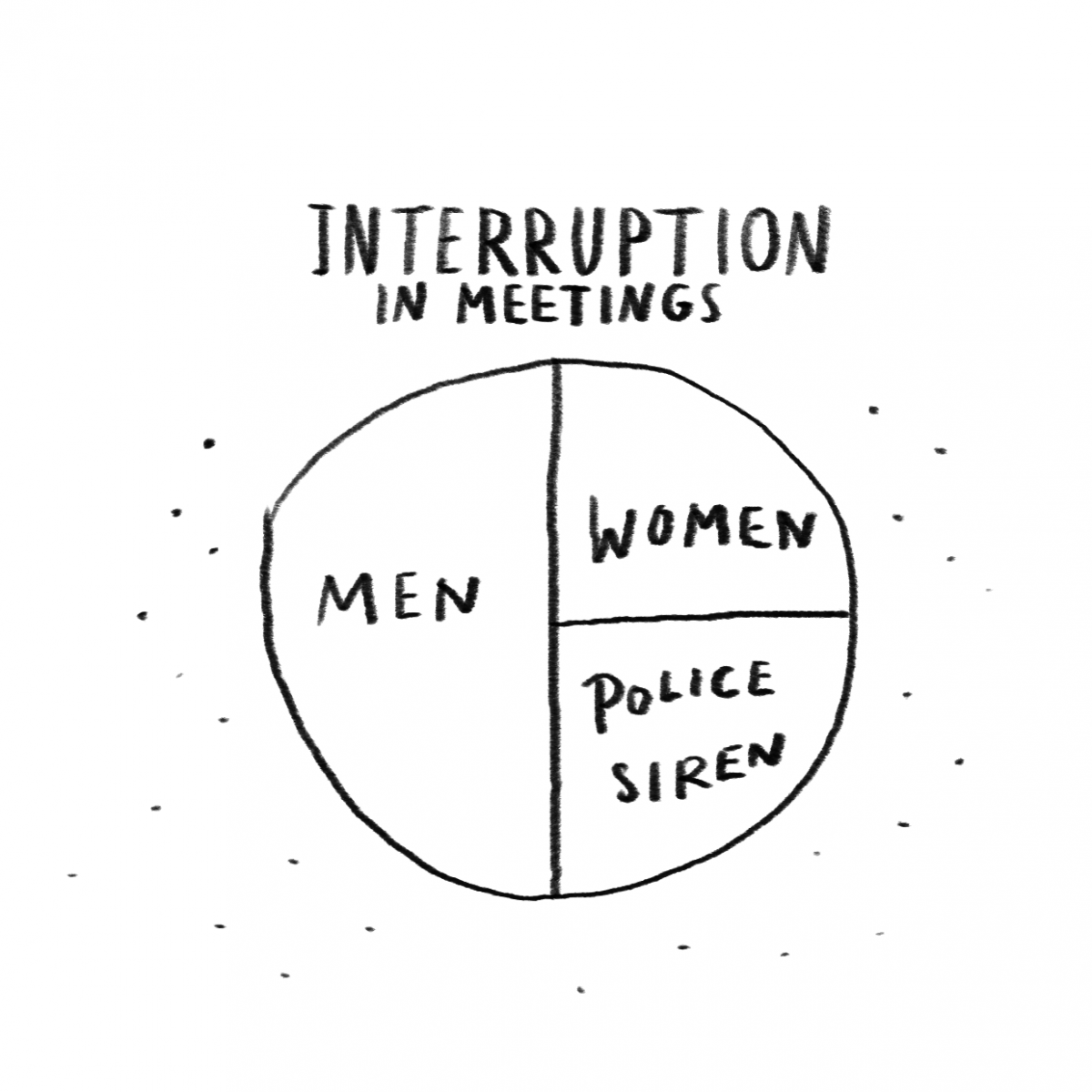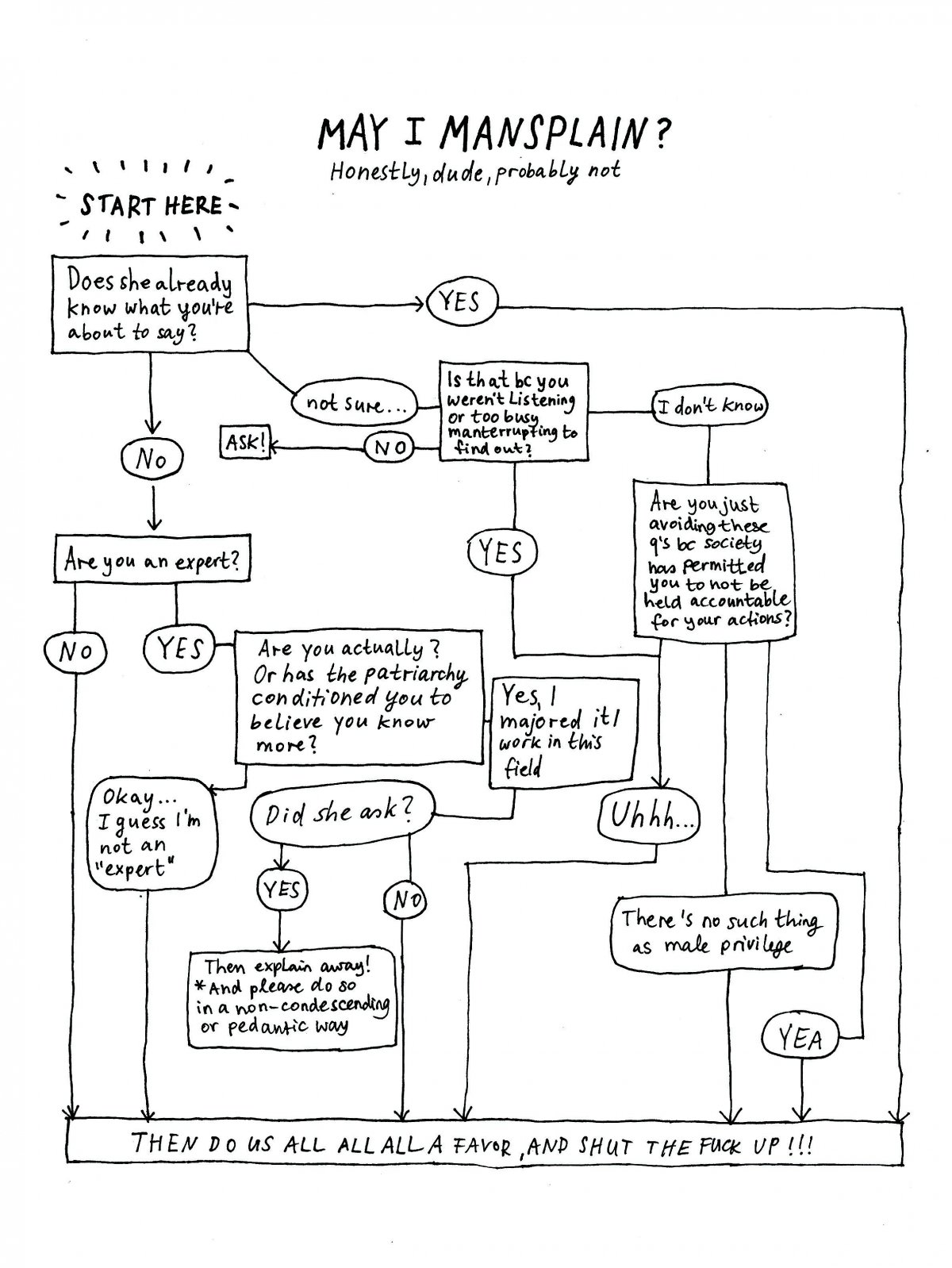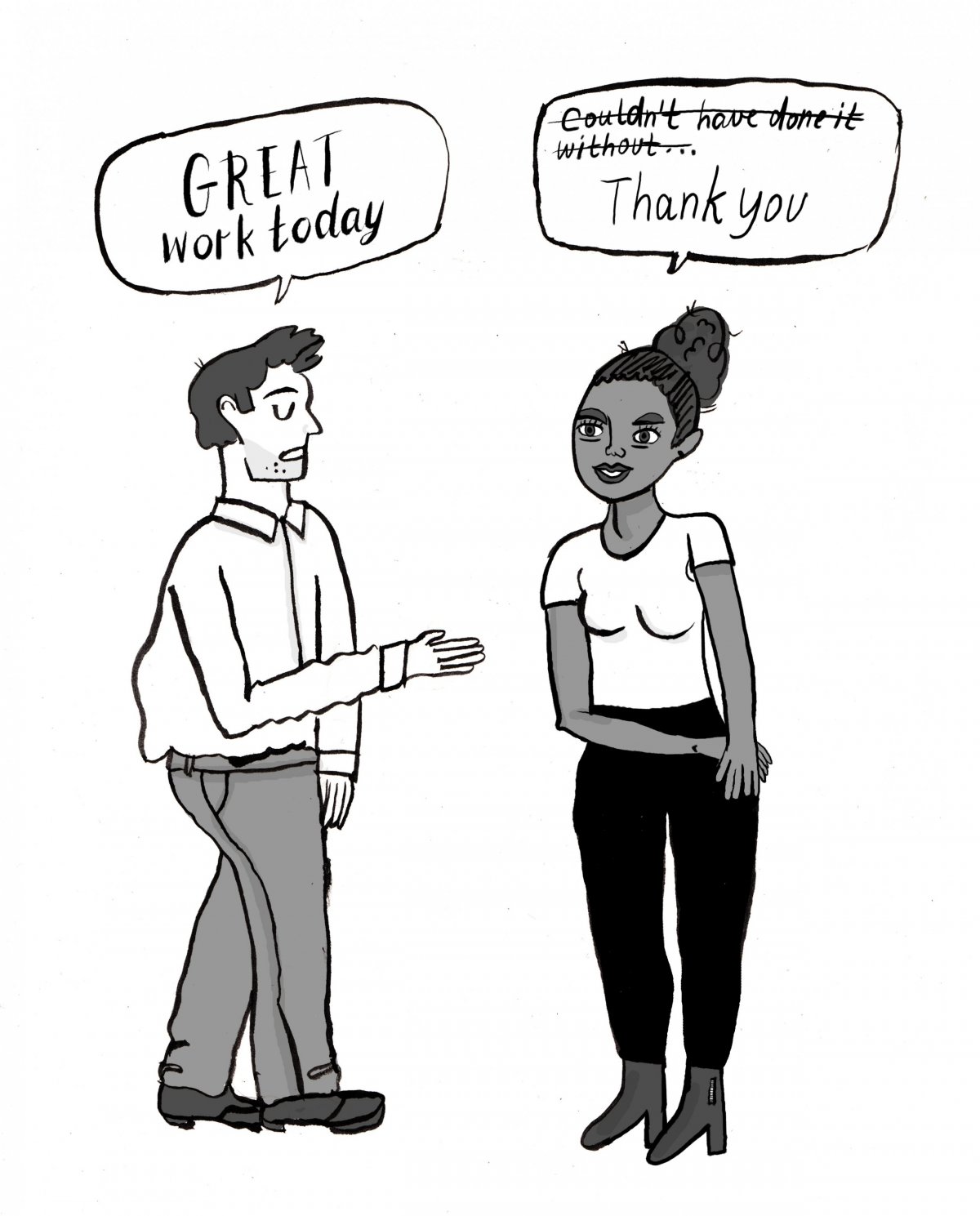
What comes to mind when you think of workplace sexism? Perhaps it's sexual harassment or the gender pay gap. But what about having a man take credit for your idea or speak over you—or being asked to take notes or bake a cake for the office party?
These are the more insidious forms that workplace sexism can take in 2016. And because sexist office culture is less blatant than it used to be, it can be even more difficult to navigate. Jessica Bennett, a contributing writer to The New York Times (and a former Newsweek staffer), wants to address that. Her new book, Feminist Fight Club: An Office Survival Manual for a Sexist Workplace, explores the research showing these subtle obstacles that women face—and offers strategies for how to deal with them. She speaks to the millennial women who are struggling to reach their full potential at work, and end up turning inward and blaming themselves.
Bennett's characters—like the Manterrupter and Bropropriator—might be tongue-in-cheek, but her advice is for the real world. Here are her top tips for navigating sexism in the office (and here, read a fuller Newsweek interview with Bennett):
1. Manterrupting: when a man speaks over you
Stats show women are twice as likely to be interrupted when they speak in professional meetings. That number climbs if you're a woman of color.
What you can do:
Verbal Chicken : You just keep talking and you do not retreat until the other person shuts up. Treat it like a game. Whatever you have to do, keep talking.
Lean In (Literally): Physically lean into the table, if there is one. In meetings, if you put your elbows on the table, research has shown that you're less likely to be interrupted.
Womanterruption: Find a wingman or wingwoman who will interrupt the interrupter when you get interrupted.

2. Own your speaking voice
There's so much discussion right now about the way women talk, whether it's vocal fry (talking like a Kardashian) or ending your statements in a question (upspeak). When we say these things don't sound authoritative, we're actually defining authority in male terms. If you were to take into account all of the different ways it seems other people would like us to speak, you would never to be able to get out a sentence without your brain exploding. But the reality is that we still live in a male-dominated world power-wise so you have to be cognizant of the way you are speaking and the way it will be interpreted.
One important thing you can do: Do not apologize before making a statement, or asking for a raise, or trying to sound confident. That will very clearly undermine you.
3. The Bropropriator: when men take credit for your work.
Research shows women are less likely to have their ideas correctly attributed to them, so if even a man repeats your idea—maybe even in support of you—the listener is likely to credit him with the idea, rather than you.
One trick you can try is the Thank 'n' Yank. You thank him: "Thanks so much for picking up on my idea!" You're being nice, but the key word is my: my idea.
There's also the Wingman (or Wingwoman). I made a pact with a male colleague before going into a meeting where he would support me in some way, whether it was nodding, or saying, "Great idea."
And if somebody else tried to take credit for one of my ideas, then he would mention it. It doesn't have to be aggressive, it can be offhand or playful. It's a win-win situation: Research shows that it makes the person giving the credit look selfless, but you also still associate them with the idea.

.
4. And when you get the credit, take it
I call this the credit defaulter—she's the woman who, like me, whenever she gets complimented is like, "Oh it wasn't a big deal, I couldn't have done it without so-and-so," rather than just saying thank you. Women often deflect, it's a learned behavior; we don't want to come off as conceited or cocky, and it's easier for women to be perceived that way. The simple act of saying "thank you" is very radical in some ways but also easy to do.

5. Being helpful…And then being treated like a secretary
That plays out in two ways. There's the man who asks you to make the copies or fix the printer or take the notes. But there's also the woman who feels like she needs to be helpful, playing into an "office mom" stereotype.
One way to deal with this is: Just don't offer to help . Repeat to yourself that every time you offer to take the notes or organize the party, it takes time away from when you could be contributing ideas that will get you credit.
There's also the "Bad Barista" move, which is just to say, "Oh, I don't actually know how to make coffee. My mom never taught me so men in the office would never ask me to make it."
You can also "Throw to a Bro "—say you haven't taken your notebook to the meeting; and suggest a man for the job instead.

6. The S-word: salary.
The research shows that women have to be much more qualified than men to be viewed on the same level, and if they're a woman of color they have to be even more qualified. The first time I ever negotiated a raise was because a male friend and colleague on the same level told me how much he made. Having that reference point gave me so much more confidence that it was unfair and I could go in there and negotiate.
A lot of women are much more openly sharing their salaries in the workplace and out. At Google, an engineer created a spreadsheet and everyone started putting their salaries in, men and women. I'm sure the bosses weren't happy about it, but it allowed a lot of women who were underpaid to go in and ask for more.
With sharing salaries, as with all of my tips, you have to take into account your situation. You'd need to be comfortable enough with the person you're asking , you'd probably be at a similar level to them. You're not going to walk up to your boss in the break room and ask her how much she makes.

7. How to say no and call out the issues
Humor can go a long way towards calling out issues that otherwise would make people feel defensive or attacked. If someone shouldn't be telling you what to do, humor can be very effective. The joke on the cover of my book reeled in a crowd of Trump-supporting men in their 60s.
As with all of these tools, women shouldn't have to do any of them. Should we have to smile and laugh while we're saying these things? No. But it can be effective and can make people feel less attacked and ultimately help them to rein in their behavior.
Uncommon Knowledge
Newsweek is committed to challenging conventional wisdom and finding connections in the search for common ground.
Newsweek is committed to challenging conventional wisdom and finding connections in the search for common ground.
About the writer
To read how Newsweek uses AI as a newsroom tool, Click here.








